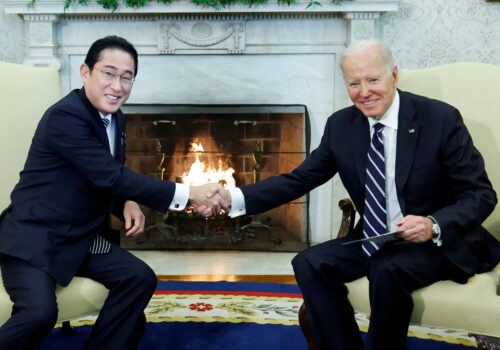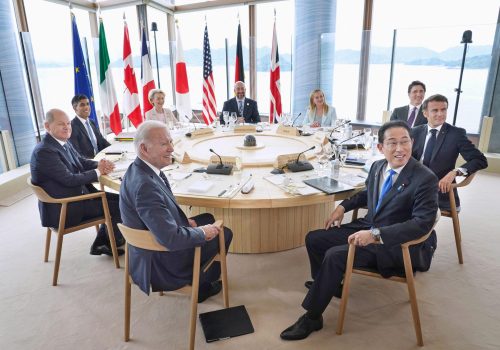Expanding the US-Japan economic security partnership: Engaging allies and partners
Executive summary
Economic security has emerged as a national security priority in Tokyo and Washington, as both confront the challenges posed by China’s civil-military fusion and economic coercion. Japanese and US policymakers have turned to industrial policy to support domestic manufacturing and research in strategic sectors. They aim to stem leading-edge technology flow to China by imposing export restrictions, while seeking to build reliable, resilient supply chains for critical minerals. The alignment of Tokyo and Washington on their strategic views of China and economic security priorities has created a new era of cooperation.
The United States and Japan have made remarkable progress in economic security. However, the real test lies in whether this partnership can serve as a building block for broader cooperation with like-minded allies and partners. Achieving shared goals for economic security will require close alignment with other advanced economies to forge collective economic resilience and a coordinated approach to protecting critical and emerging technologies. Washington and Tokyo should build upon existing economic security discussions in the G7 framework to launch “G7 Plus” agreements on economic coercion and export controls.
Success in strategic competition with China requires a robust strategy of economic engagement with Indo-Pacific countries, particularly Southeast Asia where China’s economic influence rises. The United States and Japan should intensify efforts to deliver an economic growth agenda to regional countries whose economic options are becoming increasingly limited to just China. The US-Japan alliance can leverage Japan’s strengths as a leader in infrastructure development and trade to realize the visions of the Indo-Pacific Economic Framework and the Philippines’ Luzon Economic Corridor. They should also revisit discussions on market access with key Indo-Pacific partners. Sectoral trade deals in critical minerals would help build resilient, diversified supply chains, while signaling that the United States and Japan remain open to mutually beneficial economic linkages.
Related content

The Indo-Pacific Security Initiative (IPSI) informs and shapes the strategies, plans, and policies of the United States and its allies and partners to address the most important rising security challenges in the Indo-Pacific, including China’s growing threat to the international order and North Korea’s destabilizing nuclear weapons advancements. IPSI produces innovative analysis, conducts tabletop exercises, hosts public and private convenings, and engages with US, allied, and partner governments, militaries, media, other key private and public-sector stakeholders, and publics.
Image: Indo-Pacific Economic Framework (IPEF) leaders pose for a family photo at the Asia-Pacific Economic Cooperation (APEC) CEO summit in San Francisco, November 16, 2023. Reuters/Brittany Hosea-Small.


